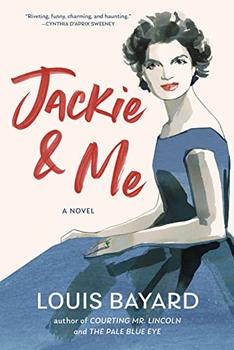Book Club Discussion Questions
In a book club? Subscribe to our Book Club Newsletter and get our best book club books of 2025!
For supplemental discussion material see our Beyond the Book article, Lem Billings and the Kennedys and our BookBrowse Review of Jackie & Me.
Please be aware that this discussion guide will contain spoilers!
- Although the bulk of Jackie & Me takes place in the early 1950s, the story is told by Lem Billings from the vantage point of 1981. What does this perspective do for our understanding of the book and its characters?
- What common ground do Jackie and Lem find during their initial meeting? Does the nature of their relationship change as they become better acquainted? What do they get from each other that they don't get from anyone else?
- Lem uses quantum physics as an analogy for life's potentialities, suggesting that "embedded in every human life, there are traffic crossings, where ... we would see the contingencies of our fate coming together and commingling, before charging off in opposed directions." What do you think of this model? Does it apply to moments in your own life?
- Over the course of the book, Jackie moves in what were in that era seemingly opposed directions—toward career and toward matrimony. Where do you think her true heart lies? Would she make the same choices if she lived today?
- "You don't think freedom comes free, do you?" asks Jackie. How does the theme of freedom play out through the story?
- In her application for Vogue magazine's Prix de Paris, Jackie jokingly refers to her career goal as "Overall Art Director of the Twentieth Century." How close does this come to realizing her actual achievements later as First Lady and style icon?
- Games and athletic competitions figure prominently in this story. How do they relate to the book's larger themes?
- The first conversation between John Kennedy's father, Joseph, and Jackie takes place in a doll room. What does that setting convey about the individual characters? About the dynamic of their relationship?
- One way or another, Lem tells us, Jack has been battling death since childhood. What does Lem mean by this? How does that color his behavior toward others? Does it affect your opinion of him?
- Mr. Kennedy insists that Jack can only be elected to highest office if he's married. Jackie, by contrast, concludes that Jack's appeal to women voters depends on his remaining single. Who's right? Do the old political rules still apply today?
- In a critical moment, Lem lies to Jackie about Jack's ability to remain faithful. Why? How does his decision reverberate through the story?
- What do the wedding negotiations between the Kennedys and the Auchinclosses reveal about the families' respective places in society? Does anybody "win" or "lose"? How does the outcome reflect changes in mid-20th-century America?
- 13. At story's end, Lem is beginning to take down some of the Kennedy photographs on his wall. What does that signify? Has he been changed by what he remembers?
- In the final scene, Lem and Jackie are reunited in Central Park. Is this a real-life encounter or part of some "alongside life"? Or something else entirely?
- Does this story make you feel differently about Jackie Kennedy than you did before reading it?
Download the complete Book Club Kit including author essay, discussion topics, cast of characters, cocktail recipes and a reading list.
Unless otherwise stated, this discussion guide is reprinted with the permission of Algonquin Books.
Any page references refer to a USA edition of the book, usually the trade paperback version, and may vary in other editions.
